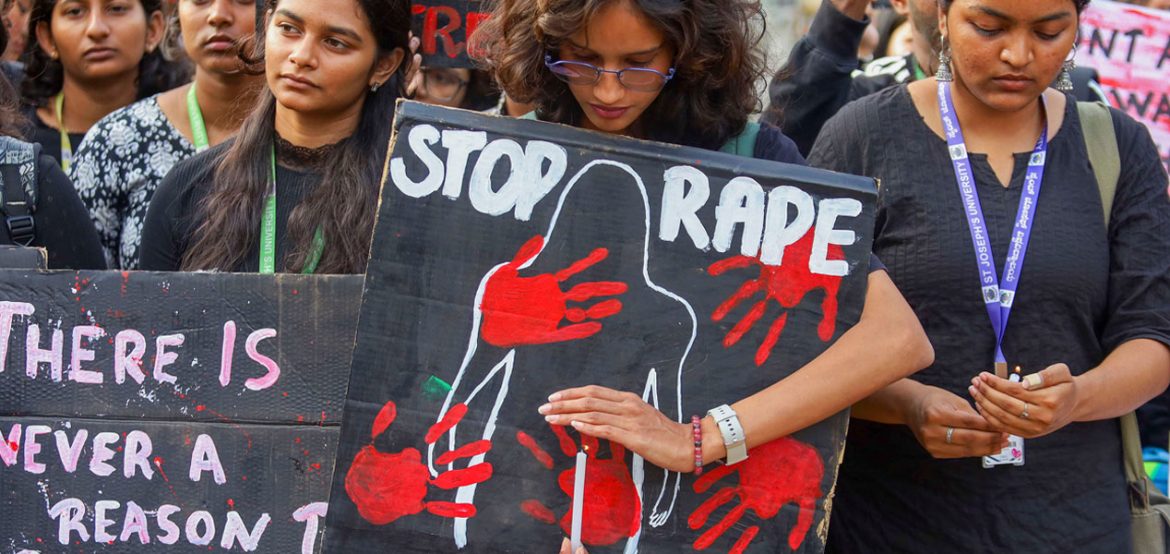- In Muzaffargarh, a nurse narrowly escaped an assault attempt by quickly sharing her live location with a female doctor, who alerted the police; authorities located the rickshaw and forced the attackers to flee, later apprehending one of the suspects.
- Misogyny continues to be a significant threat globally, with Unicef reporting over 370 million survivors of sexual violence before age 18, the highest numbers in sub-Saharan Africa and Asia; in Pakistan alone, over 10,000 cases were reported in Punjab in 2023, many others likely unreported.
- While Pakistan has introduced laws to protect women, inadequate enforcement allows violence to persist; urgent state action is needed to allocate resources, strengthen legal processes, and prioritize women’s rights to create a safer society.
In Muzaffargarh, a brave nurse narrowly escaped an attempted assault thanks to her quick thinking and assistance from a vigilant doctor.
After finishing her shift at a private clinic, she boarded a rickshaw from Katchehry Chowk to return home. Her suspicions grew as the driver deviated from the usual route, claiming he had another passenger to drop off.
Sensing danger, the nurse discreetly shared her live location with a female doctor at the clinic, who promptly alerted local authorities.
Upon receiving her location, police acted swiftly, tracking down the rickshaw near Mondka Bypass. By the time officers arrived, the driver and an accomplice had tied up the nurse and attempted to assault her.
However, the timely aerial shots fired by police forced the attackers to flee, leaving the nurse unharmed but shaken.
Authorities quickly took the rickshaw into custody and registered a case against the two suspects for attempted assault and kidnapping.
Civil Lines Station House Officer Shahid Shah confirmed that one of the main suspects, Imran Kharak, was arrested the following day, while efforts to apprehend his accomplice continued.
Also Read:
12 Women Raped Daily in Punjab: WAR Report
MISOGYNY: The Global Threat to Women’s Safety and Autonomy
Misogyny, a pervasive issue worldwide, severely restricts women’s autonomy and control over their bodies. Recent Unicef data offers a grim insight into the scale of sexual violence faced by women and girls globally, with over 370 million survivors reporting sexual abuse before the age of 18.
The statistics reveal that sub-Saharan Africa has the highest number of survivors at 79 million, followed closely by eastern and south-eastern Asia with 75 million.
In Pakistan, the reality is similarly alarming: the Sustainable Social Development Organisation reported over 10,000 cases of violence against women registered in Punjab alone in 2023, though countless cases go unreported.
Patriarchal social norms fuel this violence, but it is the lack of institutional and judicial support that perpetuates the problem. Has the state forfeited its duty to uphold laws that protect women?
Despite introducing progressive policies, signing international treaties, and offering constitutional guarantees, Pakistan has been inconsistent in translating these assurances into reality.
While legal frameworks exist to safeguard women, the absence of tangible implementation leaves them vulnerable. Consequently, sexual abuse continues to rise, and objectification and normalization of rape persist. Investing in women’s protection is no longer an option but an urgent necessity.
The state must allocate resources and personnel to ensure the enforcement of these protections, bring perpetrators to justice, and dismantle systems that enable impunity.
Women’s development departments and dedicated police units need reinforcement to address gender-based violence meaningfully, along with prioritizing girls’ access to education.
Survivors bear deep psychological wounds that often impact their productivity and relationships, underscoring the need for systemic reform and committed action to create a society where women can live free from fear.
Stay tuned to WOW360.
